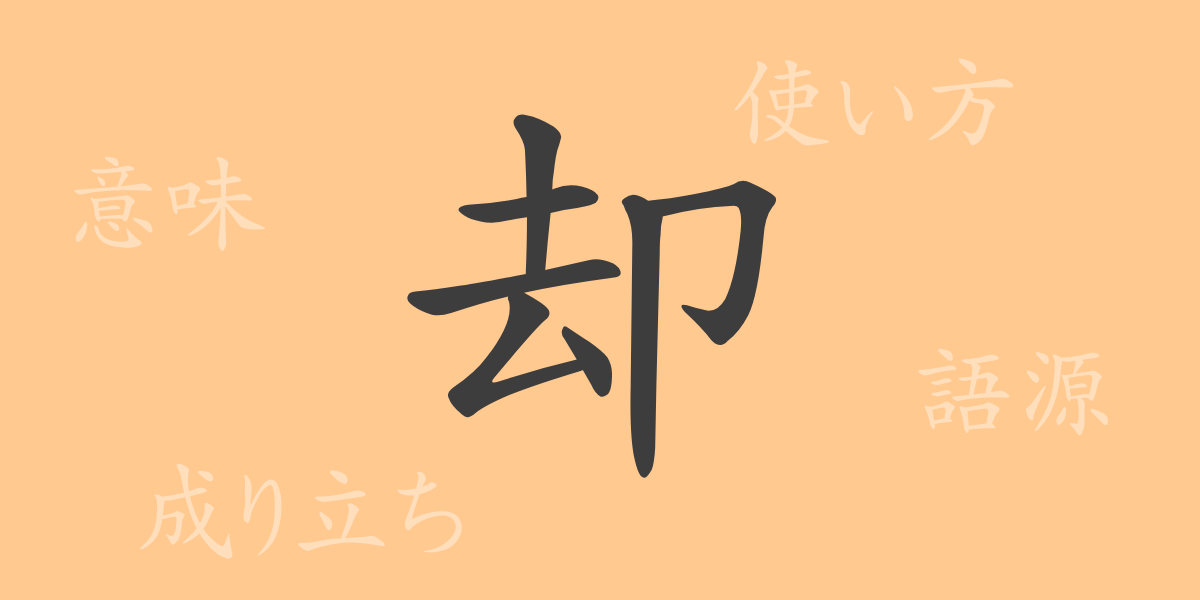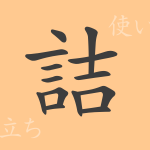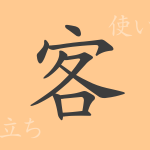The Japanese language is rich with many kanji characters that have been passed down through the ages, each with its own unique history and meaning. This time, we spotlight the common-use kanji “却” (kyaku), often seen in daily life but rarely considered for its deep meanings and origins. Let’s explore the expressive power of this single character and its usage in Japanese.
Origin of 却 (語源)
The kanji “却” (kyaku) developed from ancient Chinese pictographs. Originally, it depicted a footprint representing the idea of taking a step back, symbolizing “retreating” or “removing.” Over time, its form and meaning evolved, and in modern usage, “却って” (kaette) signifies negation or contradiction, while “却” (kyaku) can mean “remove” or “return.”
Meaning and Usage of 却 (kyaku)
The kanji “却” (kyaku) primarily means “to reject,” “to retreat,” or “to remove.” Depending on the context, it can also imply contradiction, such as “however” or “on the contrary.” For example, in the sentence “期待した結果とは却って異なる” (Kitai shita kekka to wa kaette kotonaru), it means “contrary to what was expected.” In “却下” (kyakka), it means “to reject a proposal or opinion.”
Reading, Stroke Count, and Radical of 却 (kyaku)
The kanji “却” (kyaku) has multiple readings in Japanese.
- Reading: The on-yomi (Chinese reading) is “キャク” (kyaku); the kun-yomi (Japanese readings) are “しりぞく” (shirizoku) and “しりぞける” (shirizokeru).
- Stroke count: 7 strokes.
- Radical: The radical is “卩” (ふしづくり, fushizukuri).
Idioms, Proverbs, and Expressions Using 却 (kyaku)
There are many idioms, proverbs, and expressions that include “却” (kyaku). Here are a few examples:
- 却下 (きゃっか, kyakka): To reject a proposal or opinion.
- 却って (かえって, kaette): On the contrary; unexpectedly.
- 取り却す (とりかえす, torikaesu): To remove; to retrieve.
- 心却かす (こころさむかす, kokoro samukasu): To lose interest or enthusiasm.
- 却本命 (きゃくほんめい, kyaku honmei): An unexpected choice different from the original favorite.
These expressions often carry meanings of negation or reversal and are used to emphasize specific situations in sentences.
Summary on 却 (kyaku)
The meanings embedded in a single kanji character are deeply influenced by its shape and history. The kanji “却” (kyaku) is no exception, with its usage spanning various contexts in Japanese. As a conjunction expressing contradiction or negation, or as a verb indicating an action, it plays a crucial role in everyday conversation and writing. Understanding the rich history and meanings behind seemingly simple kanji characters enhances our appreciation of the expressive power of the Japanese language.

























